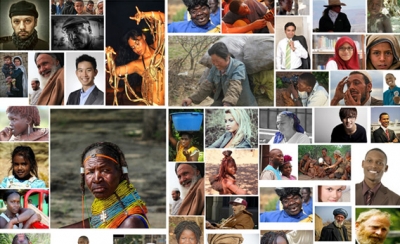Unmeltable Ethics

Michael Novak, in his perspective book The Rise of the Unmeltable Ethics, ably defends the right of each ethnic group to remain itself. He sees the barriers each group builds around itself as normal and desirable parts of the human scene. His list of ethics in the United States shatters the notion of "one American people."
When I say "ethics"... I am speaking mainly of the descendants of the immigrants of southern and eastern Europe: Poles, Italians, Greeks, Slavs... Armenians, Lebanese, Slovenes, Ruthenians, Croats, Serbs, Czechs (Bohemians and Moravians), Slovaks, Lithuanians, Estonians, Russians, Spanish, and Portuguese (1971:46).
Novak does not deal with the English, Scottish, Irish, Danish, Norwegians, Swedes, Germans and French, the Chinese, Japanese, Filipinos, Pakistanis, Indians, Arabs, Africans, Koreans, and Vietnamese.
Like the United States, most nations are composed of many unmeltable ethics. India, for example, has more than 3,000 ethnic units (castes and tribes) each of which practices endogamy. Highly educated and politically powerful Indians are members of tightly structured segments of humanity, each of which has a stout wall built around it. Afghanistan, often thought of as one country and one people, is in fact composed of many different peoples, with different languages and customs.
In this vast mosaic, how does the Christian faith spread from piece to piece? Does it invite members of all pieces to leave their own people and become parts of the people of God? Or does the church from inside each piece?
The mosaic is a useful figure of speech but can easily convey an untruth. The many colored pieces of the mosaics in the beautiful Renaissance buildings in Italy have changed neither shape nor color in four hundred years. The human mosaic is not like that. Its pieces are constantly changing, merging with, swallowing, and being swallowed by other pieces. The languages they speak change. The clothes they wear change. They used to walk; now they ride cycles or drive cars. They were solidly illiterate; now they are highly educated. Their cultures change radically. In view of this great readiness to change should we think of the propagation of the gospel as a process of change by which all peoples and cultures are gradually transformed into a new and beautiful Christian culture? Or, does the Christian faith enter each changing, yeasting culture and transform it from within while it yet remains itself, and separate from other cultures that have become Christian?
The biblical teaching is plain that in Christ two peoples become one. Christian Jews and Gentiles become one new people of God, parts of the one body of Christ. But the one body is complex. Since both peoples continue to speak separated languages, does not the oneness cover a vast and continuing diversity.
The chapter describes the obvious fact that human beings are born into thousands of very different societies, separated from each other by many barriers. It also explores ways in which the Christian faith, while making all Christians one in Christ Jesus, can be communicated across the barriers, over the ditches, and thus built into the other societies , classes, castes, tongues, and segments of humanity.



